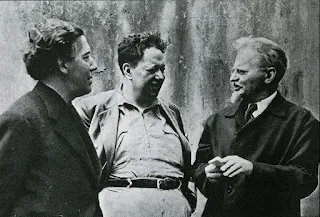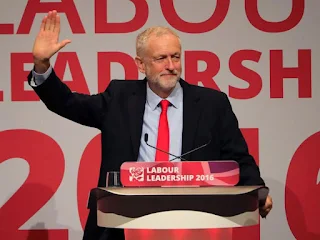In total 266 men and boys were killed with only 6 men surviving, caused by poor safety standards combined with poor management.Only eleven bodies were recovered from the mine. Inquests recorded the
cause of death as carbon monoxide poisoning.
After a few hours of the first explosion, more than 1,000 men had assembled around the pithead standing silently in the cold and pouring rain, waiting to help their comrades who were trapped down below.For two days brave men fought to reach their entrapped colleagues, until came the terrible inhuman decision to withdraw and seal the pit shaft, with men still trapped inside. The roads and shafts were burnt and collapsed forever entombing the bodies of the victims closed.
With this some 800 children lost their fathers and more than 200 women lost their husbands and loved ones. It was not to be the worst mining disaster in the history of British mining though, Senghennyd holds that dubious privilege,
but still serves as a tragic reminder of how in a single day a community was to see and witness and feel the real price of coal, with every member of the community in Wrexham losing someone on this day. .
Following the disaster there was a huge cover up,plus the wages of over 1,000 miners were docked by the owners adding further insult and injustice that would add much further pain and bringing muchf urther untold hardship to the area, with the result being that by the end of autumn, an estimated 1,100 Gresford men thrown on the dole. This combined with the fact that the management were never prosecuted, because they destroyed all records of this disaster was an absolute betrayal of the men who perished.
In its aftermath however following an inquiry numerous breaches of law were eventually exposed, The pit, it turned out, had a very erratic safety record and high
levels of firedamp (methane gas) had been recorded and ignored. The
enquiry that followed used the words, "neglect", "incompetence",
"inadequate ventilation" and "lack of monthly reports". However, most of
the blame centred on the management and colliery manager, William
Bonsall, was branded the "villain", so deflecting the wrath originally
directed at the owners, including Henry Dyke Dennis, who had not
employed a mining engineer to check safety in the pit since 1932.
Bonsall was fined £140, with costs of £350 and most of the other charges
made against the colliery company were either withdrawn or dropped.
Part of the problem had been that the miners themselves, the only really
worthwhile witnesses, were reluctant to appear in court to give
testimony against their bosses, fearing this would result in their
instant dismissal and being thrown on the dole to add to an already
swollen labour market. Furthermore, they would also have been
blacklisted by all the other mine owners from ever working in the
industry again.
However, the disaster became a symbol that, eventually, resulted in
better and safer working conditions in the coal mining industry
throughout the UK but it would be yet another twenty years before the lessons learned would bring fresh legislation in the form of the 1954 Mines and Quarries Act, but it all came too late for the Gresford dead
The colliery reopened after the disaster with coal production resuming in January 1936, but was to eventually be closed down for good for economic reasons in November 1973. Eventually in 1982 a memorial to the victims was erected nearby, constructed by using a wheel from the old pit-head winding gear. We should remember the desperate situation of those who were trapped,
and their darkest hours just before dawn. An incident of national
importance that should never be forgotten.As the late, great Ewan McColl put it, in his iconic song, The Gresford Disaster, it was "the terrible price that was paid" by your ancestors to keep the home fires burning. Cofiwch Gresffordd/ Remember Gresford.
The names of the 266 men who died in the mining disaster in Wrexham on 22 September 1934.
Anders, John Thomas; Repairer; 31
Anders, John; Beltman; 27
Anderson, George; Repairer; 67
Andrews, Alfred (Owen); Cutter; 43
Archibald, Joseph (John)*; Metal; 47
Archibald, Thomas; Cutter; 30
Baines, David; Haulage; 26
Bateman, Maldwyn; Haulage; 15
Bather, (Edward) Wynne; Collier; 36
Beddoe(w)s, Edward; Collier; 63
Bew(d)ley, Thomas Lloyd; Collier; 58
Bow, (Bew) Arthur; Cutter; 45
Bowen, Alf (F); Borer; 53
Boycott, Henry; Packer; 38
Brain, Herbert; Repairer; 31
Bramwell, George; Haulage; 30
Brannan, John; Collier; 32
Brown, George*; Rescuer; 53
Brown, William Arthur; Rider Haulage; 22
Bryan, John A.H.; Packer; 20
Buckley, A.; Haulage; 21
Burns, Fred; Collier; 41
Capper John A.; Packer; 35
Cartwright, Albert Edward; Packer; 24
Cartwright, Charles; Filler; 25
Chadwick, Stephen; Filler; 21
Chesters, Edwin*; Fireman; 67
Clutton, Arthur; Packer; 29
Clutton, George (Albert); Packer; 20
Clutton, John Thomas*; Rider Haulage; 35
Collins, John ( Jos.); Shot Firer; 62
Cornwall, Thomas R.; Haulage; 30
Crump, William; Cutter-man; 36
Darlington, Thomas; Ripper; 28
Davies, Arthur; Filler; 24
Davies, Edward; Packer; 53
Davies, George (William); Haulage; 26
Davies, Hugh T.; Borer; 26
Davies, James; Repairer; 31
Davies, James; Repairer; 37
Davies, James (Edward); Filler; 21
Davies, John; Collier; 64
Davies, John; Repairer; 45
Davies, John E.; Collier; 32
Davies, E. R. (John R.); Repairer; 69
Davies, Matthias; Filler; 24
Davies, D. (Peter); Repairer; 50
Davies, Peter; Filler; 25
Davies, Peter; Borer; 21
Davies, Robert Thomas; Collier; 34
Davies, Samuel; Filler; 35
Davies, Thomas; Repairer; 31
Davies, William; Repairer; 33
Dodd, Thomas; Ripper; 39
Duckett, Fred; Collier; 29
Edge, Joseph (John); Haulage; 28
Edge, S. (T. Samuel); Collier; 30
Edwards, Albert; Repairer; 62
Edwards, Ernest; Haulage; 16
Edwards, I. (E. Glyn); Haulage; 23
Edwards, Ernest Thomas; Ripper; 53
Edwards, Frank; Pipe-man; 23
Edwards, James Sam; Haulage; -
Edwards E. (John Edward); Collier; 39
Edwards, John C.; Packer; 30
Edwards E. T. (Thomas David); Ripper; 40
Edwards, William; Ripper; 32
Edwardson, John; Beltman; 41
Ellis, George (Edward); Collier; 43
Evans, Fred; Collier; 50
Evans, Jos. (John); Cutterman; 32
Evans, Norman; Doggie; 45
Evans, Ralph; Cutter; 37
Fisher, Len; Haulage; 30
Foulkes, H. (Irwin); Haulage; 21
Gabriel, Richard George; Collier; 61
Gittens, Joseph (John Henry); Repairer; 42
Goodwin, John; Packer; 51
Griffiths, Edward; Filler; 21
Griffiths, Ellis; Packer; 50
Griffiths, Emmanuel; Packer; 53
Griffiths (E.) C.; Repairer; 25
Griffiths, Frank (John Francis); Repairer; 57
Griffiths, Walter; Repairer; 50
Hall, Walter; Packer; 49
Hallam, Thomas W.; Packer; 32
Hamlington, Arthur; Repairer; 62
Hampson, Frank (A.); Repairer; 32
Harrison, Arthur; Collier; 21
Harrison, Charles Edward; Haulage; 15
Hewitt, P. (Phillip J.); Repairer; 56
Higgins, W. (William Henry); Haulage; 27
Holt, Alfred (F); Cutter; 31
Hold (Houlden) John Henry; Haulage; 21
Hughes, Cecil; Packer; 23
Hughes, Daniel; Rescuer; 56
Hughes, Francis O.; Repairer; 60
Hughes, G. (Harry); Cutter-man; 44
Hughes, John; Repairer; 58
Hughes, Peter Joseph; Collier; 27
Hughes, Robert John; Collier; 29
Hughes, Walter Ellis; Packer; 24
Hughes, William; Collier; 43
Hughes, William; Rescuer; 54
Humphries, Ben; Collier; 34
Humphreys, Joseph (John); Cutter-man; 30
Husbands, Thomas; Collier; 40
Jarvis, Ernest; Cutter-man; 41
Jenkins, William T.; Collier; 25
Johns, Percy; Packer; 27
Jones, Albert Edward; Borer; 31
Jones, Azariah; Header; 37
Jones, Cyril; Collier; 26
Jones, Daniel; Repairer; 33
Jones, David L.; Cutter-man; 36
Jones, Edward; Repairer; 64
Jones, Edward; Repairer; 56
Jones, Edward George*; Haulage; 23
Jones, Eric; Filler; 23
Jones, Ernest; Packer; 36
Jones, Evan Hugh; Repairer; 55
Jones, Francis O.; Haulage; 27
Jones, Fred; Packer; 30
Jones, Frederick H.C.; Borer; 31
Jones, George; Beltman; 47
Jones, J. (George Humphrey); Haulage; 22
Jones, Gwilym; Repairer; 52
Jones, Henry; Collier; 59
Jones, Idris; Haulage; 37
Jones, Iorwerth; Haulage; 52
Jones, Jabez (James); Haulage; 43
Jones, John Dan; Repairer; 42
Jones, John Richard; Repairer; 33
Jones, John Robert; Repairer; 55
Jones, Llewellyn; Haulage; 40
Jones, Llewellyn; Repairer; 49
Jones, Llewellyn; Collier; 38
Jones, Neville; Beltman; 30
Jones, Richard Henry; Haulage; 21
Jones, Robert; Packer; 49
Jones, Robert; Deputy Fireman; 57
Jones, Thomas; Packer; 55
Jones, Thomas E.; Collier; -
Jones, Thomas John; Haulage; 58
Jones, Thomas O.; Collier; 59
Jones, William; Filler; 21
Jones, William; Haulage; 51
Kelsall, John (Jack); Packer; 37
Kelsall, James; Haulage; 30
Lawrence, William*; Haulage; 40 (43
Lee, John Thomas; Repairer; 30
Lee, Thomas; Repairer; 16
Lewis, David; Repairer; 44
Lewis, David Thomas; Cutter-man; 46
Lewis, Jack (John); Rescuer; 48
Lilly, Joel; Repairer; 41
Lloyd, Thomas; Packer; 55
Lloyd, William; Collier; 59
Lloyd, William Sydney; Haulage; 17
Lucas, John; Collier; 59
McKean, Joseph (John); Repairer; 30
Maggs, Colin V.; Haulage; 17
Mannion, Albert; Filler; 29
Manuel, S.A. (Thomas A.); Repairer; 33
Martin, William Henry; Ripper; 37
Mathews, William V.; Haulage; 18
Mathias, Samuel; Fireman; 42
Meades, William; Packer; 39
Mitchell, George; Haulage; 23
Monks, Ernest; Haulage; 23
Morley, Edward; Repairer; 57
Morris, Alfred; Haulage; 20
Nichols, Harry; Repairer; 32
Nichols, John; Collier; 29
Nichols, William (Henry); Collier; 25
Owens, Evan Henry; Packer; 54
Palmer, Alexander*; Haulage; 20
Parry, I. S. (Isaac); Repairer; 40
Parry, Joseph; Repairer; 65
Parry, John E.; Haulage; 31
Parry, F. J. (John Richard.); Haulage; 21
Penny, Stephen; Filler; 23
Penny, William H.; Ambulanceman; 32
Perrin, Frank C.; Haulage; 23
Peters, Henry; Packer; 38
Phillips, George; Haulage; 22
Phillips, Herbert; Filler; 30
Phillips, John; Filler; 40
Pickering, John Frederick; Haulage; 22
Powell, Charles; Railman; 57
Price, (Prince) Ernest; Cutter-man; 27
Price, Samuel; Cutter-man; 37
Prydding, John; Haulage; 32
Prince, Mark; Repairer; 59
Prince, William; Repairer; 30
Pritchard, I. S. (Isiah); Repairer; 54
Pugh, Ernest; Doggie; 49
Pugh, Thomas; Collier; 54
Ralphs, John; Cutter-man; 53
Rance, Thomas R.; Haulage; 21
Rees, Albert; Pipeman; 56
Reid, Lloyd; Haulage; 20
Roberts, Arthur A.; Repairer; 63
Roberts, Edward; Collier; 35
Roberts, Edward C.; Collier; 42
Roberts, Ernest; Filler; 26
Roberts, Frank; Haulage; 26
Roberts, George W.*; Repairer Filler; 28
Roberts, Idris; Haulage; 16
Roberts, John David; Collier; 47
Roberts, H. (John); Packer; 33
Roberts, Olwyn; Filler; 24
Roberts, Percy; Haulage; 26
Roberts, Robert John; Filler; -
Roberts, Robert Thomas; Railman; 57
Roberts, Robert William; Packer; 38
Roberts, Robert; Repairer; 33
Roberts Thomas James; Filler; 19
Roberts, William; Packer; 45
Roberts, William H. (T.); Collier; 40
Robertson, William; Cutter-man; 41
Rogers, Edward Llew.; Haulage; 20
Rogers, Grenville; Repairer; 29
Ross, Harry; Collier; 34
Rowland, John David; Haulage; 17
Rowlands, John. Cutter-man; 36
Salisbury, William; Fireman; 36
Shaw, George; Collier; 63
Shone, James (John); Packer; 34
Shone, Richard; Doggie; 49
Slawson, Arthur; Haulage; 22
Smith, Leonard; Haulage; 20
Stratford, Stanley; Packer; 39
Stevens, Richard T.; Haulage; 22
Strange, Albert; Collier; 35
Tarran, John; Repairer; 50
Taylor, William Henry; Cutter; 53
Thomas, Berwyn; Haulage; 26
Thomas, John Elias; Repairer; 29
Thomas, Robert; Haulage; 22
Thomas, Tec; Collier; 26
Thornton, John; Repairer; 24
Tittle, Edward; Repairer; 44
Trow(e), Ernest; Collier; 41
Valentine S. (Fred) A; Haulage; 24
Vaughan John Edward; Repairer; 28
White John; Beltman; 38
Williams, George; Collier; 31
Williams, Harold; Collier; 37
Williams, Hugh (L. l.); Collier; 43
Williams, John; Repairer; 62
Williams, John Thos.; Packer; 33
Williams, J. T. (John D.); Repairer; 29
Williams, John; Repairer; 44
Williams, John; Collier; 29
Williams, Joseph (James); Collier; 66
Williams, N (Morris); Electrician; 24
Williams, Reg; Electrician; 29
Williams, Thomas; Repairer; 57
Williams, William A.; Cutter-man; 29
Wilson, John Walter; Haulage; 32
Witter, Henry; Repairer; 56
Wynn, Edward; Repairer; 68
Winyard, William Walter; Collier; -
Wynneyard; Repairer; 47
Yemm, Morgan (J.); Repairer; 28
* Indicates body recovered. All others, apart from rescuers, were sealed in the pit.
















